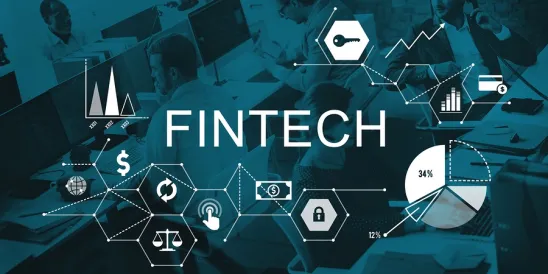The primary regulator of the nation's largest banks, the Office of the Comptroller of the Currency (OCC), said Friday that it is considering issuing special purpose national bank charters to online lenders, payment processors and other financial-technology firms (Fintech).[1]
Under an OCC charter, Fintech companies would be subject to consolidated regulatory review now reserved for traditional financial institutions. Still, proponents look at the move as a way to increase Fintech's bargaining power and simplify the industry, which currently faces challenges in connection with regulatory compliance and expansion, e.g., in the case of lending requirements, state-by-state licensing and interest rate restrictions. If adopted, this move could have a major impact on marketplace and digital currency companies by providing a regulated national platform from which they may offer their services.
This announcement by Thomas Curry, Comptroller of the OCC, was in line with the Office's innovation initiative set out in August 2015, which sought to identify ways to keep pace with advances in the financial sector while extending protections to new financial products.[2] "[I]t will be much better for the health of the federal banking system and everyone who relies on these institutions, if these companies enter the system through a clearly marked front gate, rather than in some back door, where risks may not be as thoughtfully assessed and managed," Mr. Curry explained at a conference at Georgetown University Law Center on Friday.[3] He expounded that in the United States and United Kingdom alone, there are at least 4,000 Fintech firms, and worldwide investment in the sector increased from $1.8 billion to $24 billion in the past five years.[4] These statements were coupled with the issuance of an OCC White Paper that identifies the Office's proposal as well as requests for public comment due January 15, 2017.[5]
OCC'S White Paper Proposal
The OCC's Proposal outlines its authority to grant special purpose national bank charters,[6] and provides broad guidance regarding a proposed Fintech company's application:
- To be eligible, a company must conduct at least one of the three core banking functions: receiving deposits, lending money or paying checks.[7]
- Entities would have to meet baseline supervisory expectations that would "stress the importance of a detailed business plan, governance, capital, liquidity, compliance risk management, financial inclusion, recovery and resolution planning."[8]
- Fintech firms would still be subject to existing state or federal regulatory oversight, where applicable. For example, Fintech chartered firms would not be able to accept government-insured deposits without approval from the Federal Deposit Insurance Corporation (FDIC). To this point, pursuant to state laws, Fintech chartered entities will maintain the same privileges and restrictions, which include preemption provisions added to the National Bank Act by Dodd-Frank, OCC's preemption regulations, and applicable federal judicial precedent.[9]
- The chartering process would consist of four phases, which would provide multiple opportunities for the OCC to interface with a respective company and provide both input and impose certain expectations for approval. The phases include: a) pre-filing stage, where potential applicants engage with the OCC in formal and informal planning meetings and prepare a business plan; b) the filing stage, where an organizer submits an application and publishes a notice of the charter application; c) the review and evaluation stage, where the OCC conducts background and field investigations; and d) the decision stage. This final stage is broken into three subparts: 1) a preliminary conditional approval phase (OCC decides whether to grant preliminary conditional approval); 2) organization phase (the bank raises capital, prepares for opening and the OCC conducts a preopening examination); and 3) the final approval phase.[10]
The OCC is expected to receive extensive comment following months of deliberation inside the OCC as to whether it would become the first US regulator to allow nonbank Fintech firms to receive some powers that other full-fledged banks now have.[11]
- The OCC White Paper is available here.
- Public Comments are due January 15, 2017.
[1] See Remarks by Thomas J. Curry, Comptroller of the Currency, Before the Georgetown University Law Center, Special Purpose National Bank Charters for Fintech Companies, (Dec. 2, 2016)[hereinafter "Curry December Remarks"].
[2] See Remarks by Thomas J. Curry, Comptroller of the Currency, Before the Federal Home Loan Bank of Chicago, (Aug. 7, 2015), available here.
[3] Curry December Remarks, at 5.
[4] Id.
[5] OCC, Exploring Special Purpose National Bank Charters for Fintech Companies, (Dec. 2016), at 15-16, available here [hereinafter "OCC White Paper"].
[6] As groundwork for this Proposal, the OCC recently received comments on a proposed rule to establish a framework for the receiverships of an uninsured national bank under the receivership provisions of the National Bank Act. See Receiverships for Uninsured National Banks, 81 Fed. Reg. 62, 835 (proposed Sept. 13, 2016) (to be codified at 12 C.F.R. pt. 51).
[7] "The OCC also has chartered other special purpose national banks including bankers' banks, community development banks, and cash management banks." OCC White Paper, at 3, n. 5.
[8] OCC White Paper, at 8.
[9] See OCC White Paper, at 5-6.
[10] OCC White Paper, at 13-14.
[11] See OCC, Supporting Responsible Innovation in the Federal Banking System: An OCC Perspective, (Mar. 2016), at 3,(providing an overview of the OCC deliberation process).





 />i
/>i

